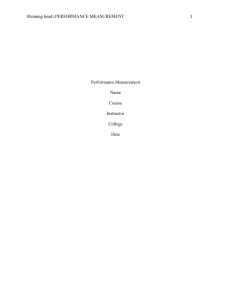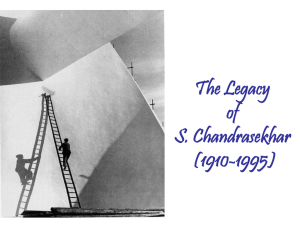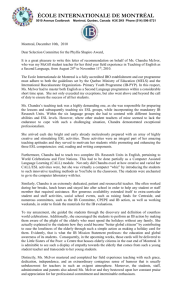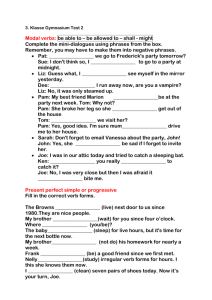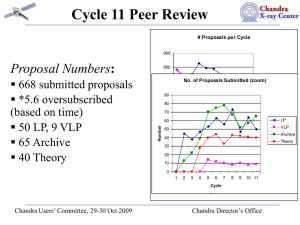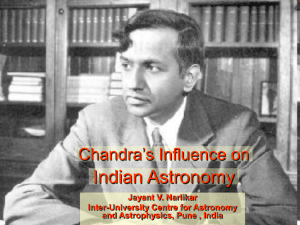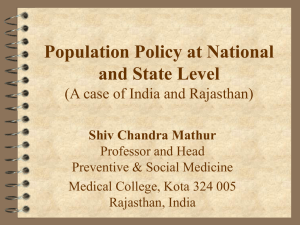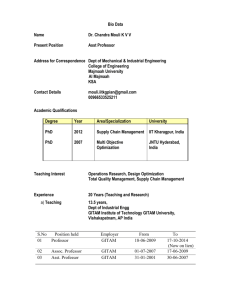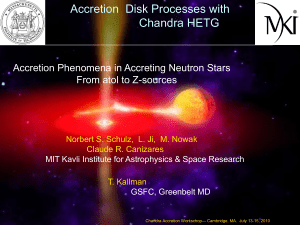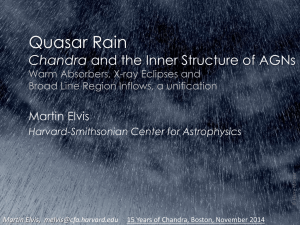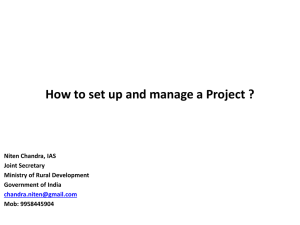Document
advertisement
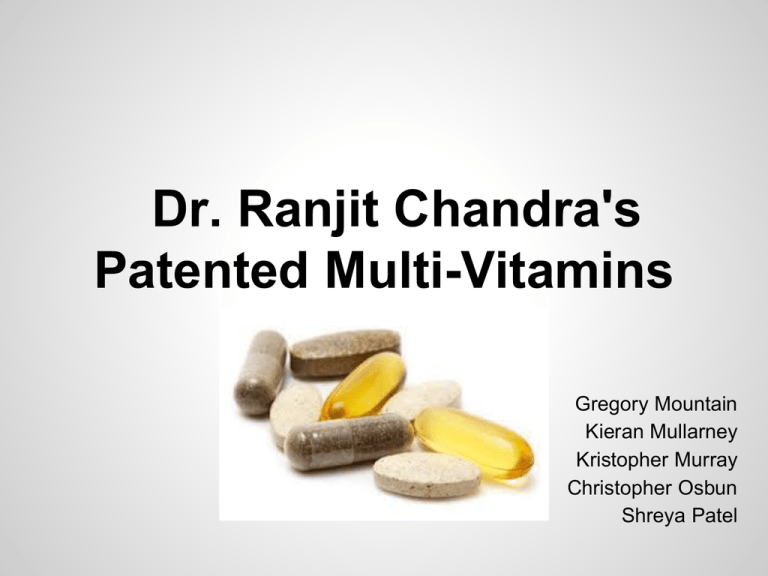
Dr. Ranjit Chandra's Patented Multi-Vitamins Gregory Mountain Kieran Mullarney Kristopher Murray Christopher Osbun Shreya Patel Facts of the Case • • • • • • Dr. Ranjit K. Chandra worked at Memorial University of Newfoundland in St. John’s, Canada for 27 years Dr. Chandra published nearly 200 scientific papers during his career In 2001, Nutrition published a paper by Dr. Chandra in which he suggested a multivitamin formula that strengthened cognitive function in the elderly Dr. Chandra retired from Memorial in 2002 Accusations about the validity of his multivitamin paper and later his entire body of work began to arise In 2005, Nutrition retracted Dr. Chandra’s multivitamin paper "Effect of Vitamin and Trace-Element Supplementation on Cognitive Function in Elderly Subjects" Ranjit Kumar Chandra, M.D. • • • • Dr. Chandra hypothesized that consumption of adequate amounts of micronutrients improved cognitive function in those over the age of 50. Chandra conducted a random study of 96 individuals over the age of 65 who were split into a placebo group and a group that received the vitamin supplement for 1 year Dr. Chandra’s data suggests that there was a significant reduction in vitamin deficiencies such as vitamins A, B6, C, β-carotene, iron and zinc and that there was a significant improvement of most of the cognitive function tests in the supplement group. Dr. Chandra wrote that the subjects who showed deficient blood levels of 1+ nutrients showed lower scores on all cognitive tests. Doubts in validity • Beginning in 2003, accusations began to circulate about the validity of Dr. Chandra’s multivitamin paper. Some viewed Dr. Chandra’s data as ‘too good’ and accused him of fabricating results. • Dr. Chandra failed to produce raw data • Some medical journals went so far as to call Dr. Chandra’s entire body of work into question. Patented Formula • The multivitamin formula that Dr. Chandra developed was licensed to Boston-based Javaan Corporation and is available under the name Javaan 50. Investigation • • John Strawbridge, Memorial University’s director of faculty relations: "The university is not a watchdog- We are an enabler- and we've done our job, I think.” British Medical Journal’s editor, Richard Smith, explained that this may be due to a conflict of interest. The university would not want to discover that one of its own employees had been involved in such misconduct. Investigation • There were political issues in finding regulatory agencies to investigate Dr. Chandra’s work. • Many of the journals which have published Dr. Chandra’s work fight the idea of investigating his previous work… • Secretary of the World Association of Medical Editors, Pritpal S. Tamber, said, “There’s no real training for this, and properly investigating claims of misconduct is incredibly time-consuming, expensive, and requires a certain expertise.” Breached Ethical Issues and Values • Making scientific claims without supporting data or any conclusive research or findings • Fraud in the use of grant money • Money intended for research resulting in the betterment of society • Benefits of research can only be utilized if sources keep a credible status and remain ethical in their dealings so that their research can be used to inform and to foster further investigation. Breached Ethical Issues and Values • Improper representation of data • Fabrication of data Supporting Evidence of Allegations • Multiple scientific journals and 3 independent US scientists have raised questions about the validity of Chandra’s study. • • • • • Never properly addressed Raw data never provided Improbable methods and statistics Measurements out of normal range (impossible) Disappeared off the grid for some time after allegations were presented Actions Resulting in Breach of Ethics • Was the study really conducted? • Claims that the multi-vitamins reverse memory loss • No co-author on his publication Circumstances and Considerations • Stands by his methods and findings • Pressure to continue to publish significant scientific findings • Reputation • Keep grants & funding Consequences of Scientific Misconduct Institutional Level Dr. Chandra's career • • Reputations of Chandra, Memorial University, Nutrition were tarnished • Deeply ingrained in knowledge base • Investigation and remediation are expensive Consequences of Scientific Misconduct Consumer Level Many seniors took the vitamin thinking it would work Now don't trust other medicines they need Consequences of Scientific Misconduct Societal Level Retractions rates have skyrocketed Furthered mistrust of scientific community http://blogs.nature.com/news/2011/10/the_reasons_for_retraction.html Recommendations • To prevent the violation of ethics: o Chandra: Do ethical research (don’t make up data) o Memorial University: Should hold researchers accountable o Nutrition Journal: Should have found same issues BMJ did Recommendations • To prevent the violation of ethics: o BMJ: Instead of just rejecting paper, do something about suspected fraudulent research o Scientific Community: Develop standard way to deal with cases of fraud like this with harsh punishments Preventing further incidents Researchers should... be ethical, and also educated about what is and what isn't allowed. hold co-workers accountable. Journals should... pay attention to plausibility of data, and if they find something suspicious, do more than just reject paper. Preventing further incidents Universities and Employers should... take allegations of fraud seriously and have a set way to handle situation. educate about fraud and have harsh punishments. Funders of Research should... hold researchers accountable by retracting funds or making it more difficult to get grants. Why Should We Care? It is important to know about this case today because knowing about the consequences of fraud can help prevent it in the future. Cases like this make the scientific community look bad, and can have serious and broad consequences. References http://www.ncbi.nlm.nih.gov/pmc/articles/PMC3195176/ http://www.nytimes.com/2004/05/06/us/a-top-scientist-s-research-is-under-attack.html http://www.ncbi.nlm.nih.gov/pmc/articles/PMC1181274/ http://media.sethroberts.net/chandra/2003_Chandra_letter_in_Nutrition.pdf http://www.bmj.com/content/328/7431/67?maxtoshow=&HITS=10&hits=10&RESULTFORMAT=&author1=w hite&andorexactfulltext=and&searchid=1135777379569_4719&FIRSTINDEX=0&sortspec=relevance&volum e=328&firstpage=67&resourcetype=1 http://www.the-scientist.com/?articles.view/articleNo/24822/title/Under-suspicion--but-not-retracted/ http://ori.hhs.gov/sites/default/files/editor_retreat.pdf
